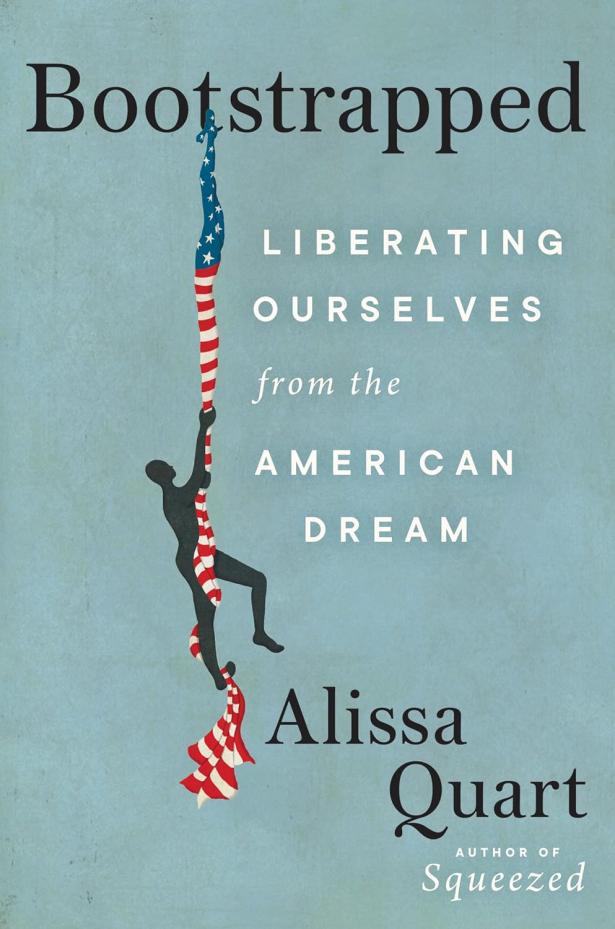Bootstrapped: Liberating Ourselves from the American Dream
Alissa Quart
Ecco
ISBN-13: 978-0063028005
In Bootstrapped: Liberating Ourselves from the American Dream, Alissa Quart, head of the Economic Hardship Reporting Project, lays bare the myth of self-sufficiency in a way that really does feel liberating. Rich with wit, her storytelling mixes historic and contemporary references and carries on her former friend and colleague Barbara Ehrenreich’s searing analysis of ways the rich exploit the poor.
Her first chapter opens with a quote from the former-slave-turned abolitionist orator Frederick Douglass and his popular “Self-Made Men” address.
“There are in the world no such men as self-made men. The term implies an individual independence of the past and present which can never exist.”
And yet, he is often misquoted — by those who cite Ayn Rand and Horatio Alger — to promote the idea that we should attribute our ability to “climb the ladder” to skill and dedication, without acknowledging the role of generational wealth and where it comes from. Quart sets the record straight and notes along the way that Alger was an alleged pedophile and that Ayn Rand relied on Social Security in her later years.
Quart also describes how, when it was first used, the notion of bootstrapping ourselves to success was mocked: “When the concept of pulling yourself up by the bootstraps was first advanced in 1834 it was understood as surreal, intended to be seen as an outlandish act — how could anyone pull up their boots to lift their own bodies?” But by the time of President Reagan, she notes that “to be a self-made success meant you were morally good, and if you had failed to succeed, you were morally corrupt.”
The burden of the American Dream can now be found in the common experiences of Americans and the “dystopian safety net” we have come to rely on, such as creating a GoFundMe to cover our healthcare costs or working for gig companies that exploit “the allure of individualism” and define their workers as “independent contractors.” In one chapter, “The Con of the Side Hustle,” Quart writes about Vanessa Bain, who was a personal shopper before the pandemic, but came to feel she was not being treated fairly once it started — the money and flexible hours did not make up for the lack of healthcare while being exposed to a deadly virus as an “essential worker.”
In the final part of her book, Quart looks at how to preserve the social safety net, and keep the parts that were expanded during the pandemic, and how mutual aid is actually also linked to the naturalist Charles Darwin. Her chapter on “Inequality Therapy” examines how “the cult of individualism has led generations to lacerate themselves.” She describes how some have called for reducing reliance on terms like “resilience” or “grit” and embracing a trauma-informed approach.
It would be great if lawmakers and policymakers would embrace the concept of interdependence in their language and in the laws they pass. In the meantime, a more informed public can refuse to go along with the sham.
“In order to get to this more radiantly centered place, though, we each need to work to snuff out the self-made myth within ourselves and to stop flagellating ourselves when we don’t achieve autonomous glory,” Quart writes. “Needing each other is our strength, not our weakness. Singular triumphs never existed in the first place.”


Spread the word